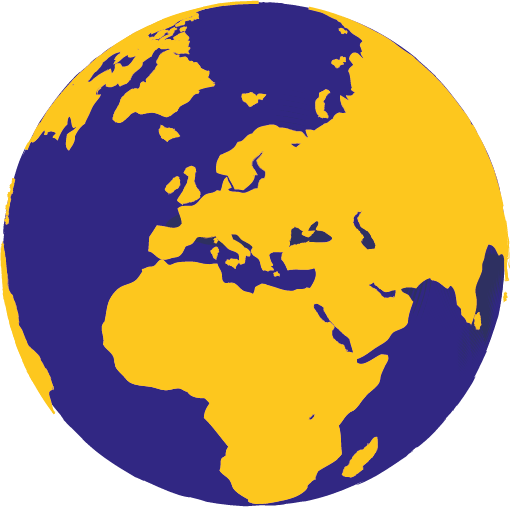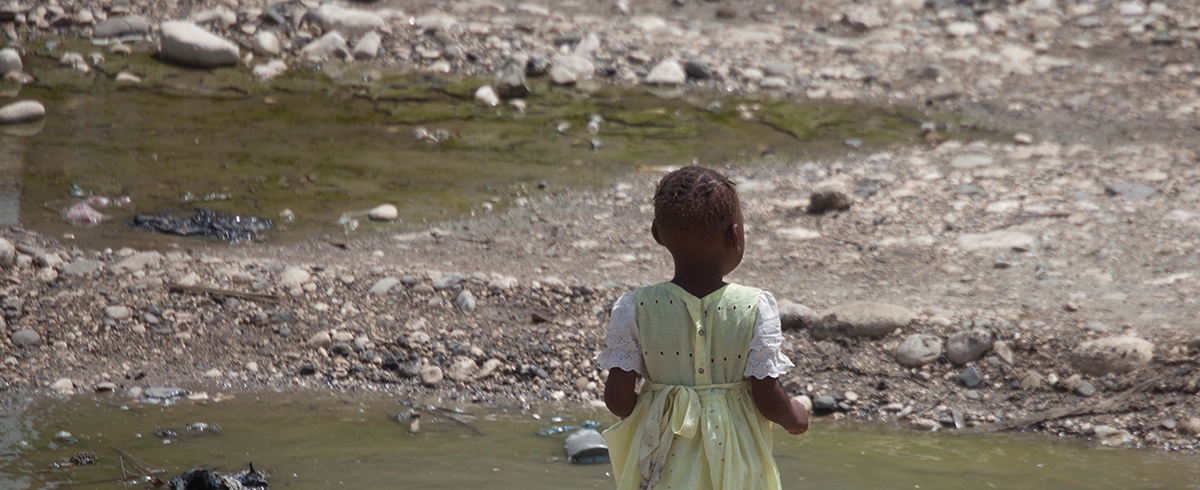Lumos starts work on joint programme to reform care services for vulnerable children and families in Haiti by 2030. Haiti will this week play host to a ground-breaking gathering of policy makers, major donors and international NGOs working to transform the lives of children living away from families in orphanages and institutions.
On 26 June, in Port-au-Prince, Lumos, the Ministry of Social Affairs and Labour (MAST) of Haiti, l’Institut du Bien-Être Social et de Recherches (IBESR) and the US Government Agency for International Development will co-organise a high-level seminar focusing on ending the institutionalisation of children in Haiti.
The event marks the official launch of a partnership between Lumos, the Haitian Government and a number of agencies to help an estimated 32,000 children – most of whom are not orphans – who currently live in Haiti’s orphanages. After a successful decade working in Central and Eastern Europe to help governments shift funding away from institutions, Lumos has widened its focus to include orphanages around the world, with the launch of a demonstration programme in Haiti.
Lumos and its partner IBESR have developed a three-year plan to begin the process of helping the institutionalised children of Haiti make the transition from institutions back to family life. With the right investments and continued political will it is entirely possible to put the systems in place that make sure all children can living in families by 2030. In recent weeks, Lumos also held a ‘study visit’ in London for Haitian policy makers and professionals earlier this month, and this week has led a three-day training event on deinstitutionalisation in Port-au-Prince in the run-up to the major seminar.
There are approximately 760 orphanages in Haiti, and around 80% of the children in them have at least one living parent - dispelling the myth that Haitian orphanages are full of orphans from the devastating earthquake in 2010. Fewer than 15% of these orphanages are officially registered with the authorities[1] and the Haitian Government says around 140 should be closed immediately because of their very poor conditions. However, Haiti does not currently have adequate and sustainable health, education and social services to support children to live in their families and communities.
The seminar will seek to raise awareness of the harm to children caused by institutionalisation – which is demonstrated by more than eighty years of global research. It will also explore effective and innovative ways to shift funding in Haiti, which comes from a range of international agencies and trust and foundations, away from orphanages and towards community-based services that will ensure Haiti’s most vulnerable children enjoy their right to be raised in families. The seminar will identify the practical and concrete next steps needed to ensure there will be no children in institutions in the country by 2030.
The event will feature world-leading speakers from the field of child health and protection, including Dr Charles Zeanah, Sellars-Polchow Chair in Psychiatry, Professor of Clinical Pediatrics and Vice Chair for Child and Adolescent Psychiatry in the Department of Psychiatry and Behavioral Sciences at Tulane University School of Medicine in New Orleans. Dr Zeanah is widely recognised as a leader in the field of infant mental health, particularly in understanding children’s development in the context of infant-to-parent relationships. He will discuss the fundamental harm caused to the early brain development of children who are deprived of a primary caregiver relationship when growing up in an institution.
Also speaking will be Professor Victor Benoit from the Ministry of Social Affairs and Labour in Haiti, Director General of IBESR Arielle Jeanty Villedrouin, the US Ambassasor to Haiti, Pamela A. White and Chief Field Officer with UNICEF, Mr. Jean Metenier. These speakers will combine their own personal insight and expertise in the field in order to start prioritising a collaborative movement away from institutional care and towards the creation of community-based services so that the children of Haiti can grow up in families.
Georgette Mulheir, CEO of Lumos, said: “In spite of many competing priorities, the Haitian Government has demonstrated strong political will to address institutionalisation in Haiti and it is included as a priority in the new Child Protection Strategy. At the same time, a number of international donor agencies that work in Haiti, including the EU, US government and the World Bank are prioritising programmes that strengthen communities and should ensure children can be raised in their families. However, developing a systematic national approach will require a significant investment in the capacity and resources to manage a major process of change – and to ensure the change is safe for children and sustainable for communities. We believe that today’s event marks a crucial step forwards in achieving this.”
The Haiti seminar follows another recent event co-hosted by Lumos in Bulgaria, on 16-17 June, at which the NGO founded by J.K. Rowling shared its international expertise in advising governments on reorganizing their finances to support reform of child care systems and the closure of institutions. This seminar was part of Lumos’ programme in support of the Bulgarian Government to improve and implement its strategy for deinstitutionalisation. Since Lumos began working in the country in 2010, the number of children in institutions has reduced by 54%[2].
Notes to editors
For interviews with Georgette Mulheir, CEO of Lumos, or other media enquiries, please contact Vicky Gillings, Head of Communications, Lumos - +44 (0) 7881 816599 vicky.gillings@wearelumos.org ; John Steele, PR Manager, Lumos - +44 (0) 7768 660953 john.steele@wearelumos.org
To find out more about Lumos visit www.wearelumos.org
Follow us on Twitter: www.twitter.com/lumos
Join us on Facebook: www.facebook.com/lumos.at.work
Follow us on Instagram: www.instagram.com/wearelumos/
About Lumos
Lumos is an international non-profit organisation, founded by the author J.K. Rowling, which works to end the institutionalisation of children around the world and helps to support the eight million children in institutions worldwide regain their right to a family life. Despite living in so-called ‘orphanages’ the majority of children who live there are not orphans but placed there as a result of grinding poverty, disability and discrimination. Lumos works with countries to transform education, health and social care systems so children can be moved from institutions and supported in the families and the community.
In six years, Lumos has:
Supported 14,280 children to move from harmful institutions to families or supported independent living;
Prevented 11,000 babies and infants from serious harm or admission to institutions;
Saved the lives of 935 children suffering from malnutrition, severe neglect or a lack of access to medical treatment;
Trained 23,000 social workers, medical professionals, teachers, carers, civil servants, and policy makers;
Helped redirect US$500 million that was planned to be spent on orphanages and institutions and ensured that it was spent on community-based services instead.
The Lumos model of ‘deinstitutionalisation’ combines advocacy at international level, support for national governments and demonstration work on the ground to show that reform can be achieved.
Lumos has recently started working with the government and other agencies and NGOs in Haiti, where at least 30,000 children live in orphanages, 80% of them with living parents.
Lumos has also been named not only as the best charity in the International Aid and Development category, but as the Best Overall Charity at the UK Charity Awards 2015 for its inclusive education work in Moldova, competing against 30 excellent UK charities for the honour. For more information on the awards and Lumos’ win, see here.
Haiti earthquake of 2010
In January 2010, a 7.0 magnitude earthquake left the island nation devastated, killing up to 220,000 people. Following the earthquake, the number of orphanages in Haiti increased significantly. Whilst the construction of institutions is an understandable response to natural disaster, research increasingly demonstrates[3] this is not the best approach and that institutions, once established, proliferate long after the disaster. Their existence can act as a ‘pull factor’, where parents place their children into orphanages in order to access basic services.
Information about children in institutions
The UN estimates that around the world there are approximately 8 million children living in care institutions.
Institutionalisation causes harmful effects to the child, including impaired early brain development, leading to delayed cognitive and physical development, in some cases, resulting in the onset of an intellectual disability. Children with a moderate to severe intellectual disability have even fewer prospects for escaping the vicious cycle of institutionalisation. Analysis of admissions to and discharges from children’s institutions in a number of countries demonstrates that the majority of these children, once they reach adulthood, are transferred to an institution for adults.
Scientific and other research – including authoritative work at Harvard University’s Center on the Developing Child - shows that consistent loving adult engagement with a young child helps strengthen neural electrical connections in the brain, shaping its development. A key failing of orphanages is that low ratios of adults to children cannot ensure the sustained adult attention children need to grow and prosper.
Research has also shown that reuniting children with families makes sound economic sense. In most cases, it is far cheaper to support a family in the community than to keep a child in an orphanage. The institutionalisation of children also places long-term economic burdens on societies. Institutionalized children suffer more ill health than the wider population and, as adults, are more likely than those raised in families, to drop out of school, face unemployment, or worse, have a criminal record, become involved in prostitution or commit suicide.
[1] L’Annuaire des Maisons d’Enfants en Haïti, (2013), Publication de l’Institut du Bien Etre Social et de Recherches, http://www.ibesr.com/fichier/Annuaire%20Corrige%202012-2014%20version%20...
[2] State Agency for Child Protection Report “Number of children in specialized institutions from 2001 to 2013”,p.1, http://sacp. government.bg/programi-dokladi/statistika/
[3]See for example: UNICEF (July 2006). Alternative Care for Children without Primary Caregivers in Tsunami-affected Countries; Indonesia. Malaysia, Myanmar and Thailand. UNICEF East Asia and Pacific Regional Office, Thailand



